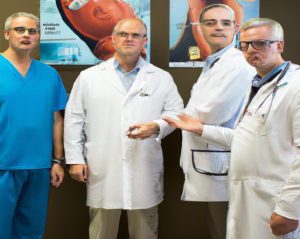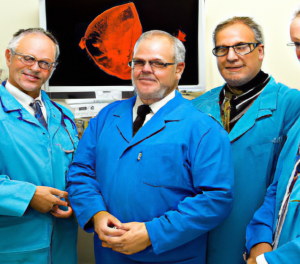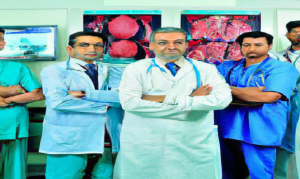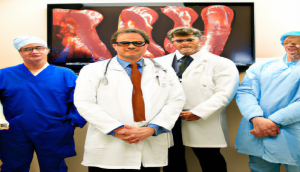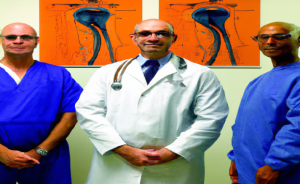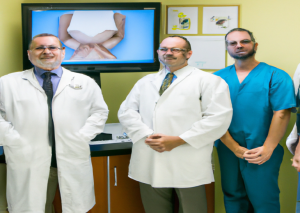A geriatric urologist and a regular urologist – what’s the difference?
Understanding Urology: The Foundation
Urology is a medical specialty that studies illnesses of the urinary tract in men and women, as well as the male reproductive system. This topic covers a broad variety of disorders, including as urinary tract infections, kidney stones, bladder control concerns, and prostate problems. Urologists are educated to deliver both medical and surgical services. They are skilled in treating acute and chronic ailments, performing cancer procedures, and correcting congenital defects. Their knowledge also includes the most recent advances in minimally invasive procedures, such as robot-assisted surgery, which has transformed the treatment of a variety of urological problems by allowing for faster recovery periods and fewer postoperative complications.
The importance of diet and lifestyle in preserving urological health cannot be understated. Dietary choices have a direct influence on urinary tract health; for example, drinking enough of fluids is vital for avoiding kidney stones, while eating less salt may help control symptoms of interstitial cystitis. Vitamins and minerals, notably vitamin C and magnesium, play critical roles in kidney health and the prevention of stone development. Furthermore, keeping a healthy weight and engaging in regular exercise improves urological health by lowering the incidence of kidney stones and urine incontinence.
- Expert urologists consulting in a modern clinic, utilizing the latest medical advancements to offer personalized care. Their dedication to men’s health is evident in their focused discussions and patient-centric approach.
- Advanced urological care in action, showcasing a team of skilled professionals using state-of-the-art equipment to diagnose and treat complex conditions, ensuring every patient receives the best possible care.
- Innovative urology: Blending cutting-edge technology with unparalleled expertise. Here, specialists are seen leveraging the latest medical advancements to revolutionize patient treatment and care.
- Dedicated urologists at work in a clinical setting, displaying their commitment to providing top-tier urological health services, with patient well-being as their top priority.
- The face of modern urology: An expert care team, united in their mission to advance men’s health through evidence-based practices and compassionate care.
- victoria urologists
- Advanced urological care in action, showcasing a team of skilled professionals using state-of-the-art equipment to diagnose and treat complex conditions, ensuring every patient receives the best possible care.
The Specialized Field of Geriatric Urology
Geriatric urology is a specialization that focuses on the specific urological demands of the elderly population. Individuals’ urinary tract and kidney function may alter as they age owing to a variety of reasons such as organ function loss, the presence of chronic conditions, and the impact of drugs. Conditions include benign prostatic hyperplasia (BPH), incontinence, and urinary tract infections become increasingly common. Geriatric urologists specialize in treating these complicated illnesses while taking into account the diverse demands of elderly persons. They are adept at delivering care that combines the treatment of urological symptoms with the overarching objective of preserving the patient’s general health and quality of life.
Geriatric urology often promotes less invasive procedures to alleviate the burden of surgery on elderly patients. When feasible, less intrusive therapies, such as laser therapy for BPH and pelvic floor exercises for incontinence, are chosen. Geriatric urologists often collaborate closely with multidisciplinary teams to coordinate care, ensuring that therapies are appropriate for the patient’s overall health requirements. This comprehensive approach is critical because it emphasizes the necessity of controlling not just the urological disease but also its influence on mobility, independence, and psychological well-being in the elderly.
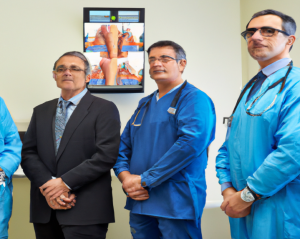
Compassionate care by professional urologists, captured in a moment of thoughtful patient consultation. This image reflects the empathy and understanding that forms the core of our clinical practice.
Regular Urologist: Broad Scope of Practice.
A regular urologist, often known as a urologist, offers comprehensive treatment for a wide variety of urological diseases across all age groups. Their experience ranges from detecting and treating basic urinary problems like infections and incontinence to handling difficult illnesses including urinary tract and reproductive organ malignancies. Regular urologists are skilled at using a range of diagnostic technologies, including as ultrasound, CT scans, and cystoscopies, to discover abnormalities. They are proficient in both conservative care measures, such as medication and lifestyle changes, and sophisticated surgical interventions, such as laparoscopic and endoscopic procedures.
A urologist’s training provides them with the information necessary to manage urological health difficulties in both genders, while some may choose to specialize in areas such as pediatric urology, urologic cancer, or male infertility. This broad experience enables them to tailor their treatment techniques to their patients’ unique requirements, taking into account aspects such as age, general health, and the severity of the ailment. Regular urologists play a critical role in the early diagnosis of urological malignancies, stressing the significance of regular screenings and preventative treatment in order to reduce risks and improve outcomes.
Read further:
Geriatric urologist – who is it?
- Expert urologists consulting in a modern clinic, utilizing the latest medical advancements to offer personalized care. Their dedication to men’s health is evident in their focused discussions and patient-centric approach.
- Advanced urological care in action, showcasing a team of skilled professionals using state-of-the-art equipment to diagnose and treat complex conditions, ensuring every patient receives the best possible care.
- Women’s Urological Health
- Compassionate care by professional urologists, captured in a moment of thoughtful patient consultation. This image reflects the empathy and understanding that forms the core of our clinical practice.
- Pioneering urological treatments and solutions being discussed by top medical professionals, demonstrating their commitment to innovation and excellence in patient care.
- Behind the scenes: Urologists preparing for surgery, exemplifying the meticulous planning and precision that goes into every procedure to ensure patient safety and success.
Comparison of Geriatric and Regular Urology: Tailored Approaches
The primary distinction between geriatric urologists and normal urologists is their patient focus and the individualized approach each offers. Geriatric urologists specialize in caring for older persons, using a holistic approach that tackles the physiological, psychological, and social issues that this population faces. Their therapies are often meant to be as little intrusive as possible, while still taking into account the patient’s general well-being and autonomy.
Regular urologists, on the other hand, handle patients from many walks of life, necessitating a flexible approach to patient care. To meet their patients’ different demands, they must be skilled in a range of surgical procedures and up to date on the newest advances in urological therapy. While geriatric urologists are aware of these breakthroughs, their primary focus is on tailoring these technologies and treatments to the special needs of aged patients, with an emphasis on safety, effectiveness, and quality of life.

Compassionate care by professional urologists, captured in a moment of thoughtful patient consultation. This image reflects the empathy and understanding that forms the core of our clinical practice.
Collaborative Care: Bridging Specialties
In many circumstances, a patient’s care may include both a geriatric and a regular urologist, as well as additional experts, to establish a thorough treatment strategy. For example, a patient with prostate cancer may initially be treated by a conventional urologist for the disease itself, but as they age, their care may move to a geriatric urologist to better handle age-related problems and comorbidities. This collaborative approach ensures that patients get therapy that is not only tailored to their specific urological problem, but also sensitive to their evolving health requirements over time.
The integration of treatment between geriatric and regular urologists emphasizes the value of communication and collaboration in providing successful patient-centered care. It emphasizes the need of healthcare practitioners seeing people holistically, taking into account the interaction of numerous health concerns as well as the cumulative impact of therapy. Working collaboratively, urologists specializing in diverse areas may offer continuity of treatment that adjusts to their patients’ changing requirements, resulting in optimum results and increased quality of life.
Read further:
TARGETING UROLOGICAL DISEASES: OUR EXPERTISE LEADS TO OPTIMAL PATIENT OUTCOMES
Men’s health – what you need to know

Innovative urology: Blending cutting-edge technology with unparalleled expertise. Here, specialists are seen leveraging the latest medical advancements to revolutionize patient treatment and care.

State-of-the-art urology facilities in use, illustrating the clinic’s investment in high-quality healthcare infrastructure to enhance diagnostic and treatment capabilities.

Urologists collaborating for better men’s health. This scene captures the essence of teamwork in medical practice, combining diverse expertise for comprehensive patient care.








